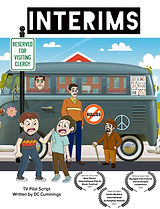Visiting Professor - Day 6 - Outside the Wall
- Jul 14, 2018
- 4 min read
Saturdays are quiet days at television stations. The newsroom has a skeleton crew and the sound of the scanner echoes up to the sales department. Scanner traffic always sounds ominous to the untrained ear. Cops can make a lunch break sound urgent. The emptiness of the station is a reminder of how many people are working during the week and the energy that vibrates Monday through Friday. The buzz of professionalism is intoxicating. I guess that’s why I enjoy spending my Saturday at my cubicle. Workaholics love working.

The majority of students don’t know what it is like to have a full time job. I apply Game of Thrones, to a metaphor I use for the seniors I teach. They have lived a sheltered life inside a fort. After they graduate, they will be pushed through the gate and they won’t return. Inside their fort, students have been practicing fighting and using swords. They have attacked imaginary dragons and demons, play time. They have learned strategies and contemplated scenarios to face the enemy. But now, they are about to head out through the gate to face the White Walkers. They have never seen a White Walker. It isn’t until you face the demons that you fully comprehend the necessity of training. At first, you will spite your professors for not telling you enough, secrets to survive. But, then the former students will reflect on their own negligence. They didn’t listen closely enough to the words of their professors. Professors want our students to be prepared for the rough world that will attempt to beat down the unsuspecting.
Today, I’m outside the fort gathering information for my army of students. I will return with stories of conquests and secrets of survival. Yesterday, Erin Sadler, the HR Director, gave me the clues to making it beyond the wall and into the land of professionals.

Students should heed these words from Erin:
Your resume:
Your resume should be excellent.It will be scanned quickly for errors and if it passes a litmus test of punctuation, grammar and format then it will be looked at closely.
Target your resume to the job you are applying.If you don’t have a target you can’t hit it.Plus, Erin will think you don’t have a goal.You are looking for….?No one is great at everything and no one wants to do a dozen jobs.Pick a job, Sparky!
Your resume should be easy to read.And make many versions of them. See #2.For each job, there should be a different resume.
Thou should not have more than a one page resume!
The interview:
Go into your interview with selling points.Be armed with your best weapon.Why would they want to hire you?What makes you so special?
Always have a question to ask during your interview.Don’t sit there like a you do in class waiting for the professor to let you leave.You are having a conversation, ask them something.“What are the main challenges of this position?” or “What are the daily demands of the job?”
Be positive! Don’t be a curmudgeon because you aren’t jaded enough, save that for guys like me.We want positive people surrounding us, not negative people infiltrating us.
THE DON’TS:
The Resume:
A long resume is bad!Bad.There is no way a college student has enough experience to fill two pages.Don’t try to fake it.
Don’t lie or fudge your history.A quick look at a resume reveals how long you were at a job and we get a good idea of whether you work well with others by how long you were employed, even if it was Jack in the Box. If you showed up for work on time, earned a check and kept a job that’s important for recruiters to know how you will fair on a daily basis.
The Interview:
Express yourself but don’t be rude or inconsistent.They want to know what type of person you are.General Manager Lloyd Bucher says that he sits down with every potential employee and asks a simple question, “What do you like to do?”He doesn’t want to hear about hypotheticals, he wants to know what passions you have outside of work. He wants you to be more than a stick figure person with codified language.He wants you to be passionate and knowledgeable about the profession you are about to make your life’s work.
For now, there are more do’s than don’ts. It really isn’t too hard. You do need a college degree. Very few people employed in television do not have a college degree and Scripps has college education reimbursement programs for you if you wish to continue or finish your education.
WPTV-TV uses Skype for some interviews. You might want to practice. They also have a website that records your answers to pre-set questions. It’s a bit like a game show.
Finally, don’t be afraid of what lies outside the walls. If you have listened to your professors, completed an internship or have worked at a real job you have a good start. You will figure it out or maybe you won’t. In either case, be ready for the unexpected.








Comments